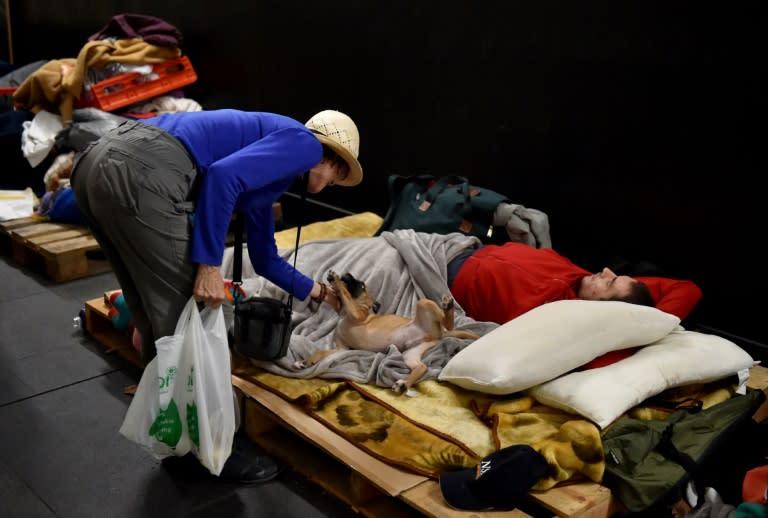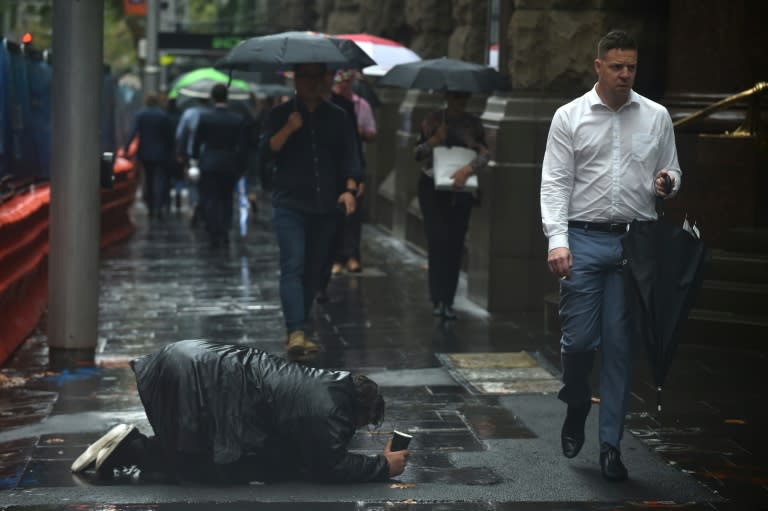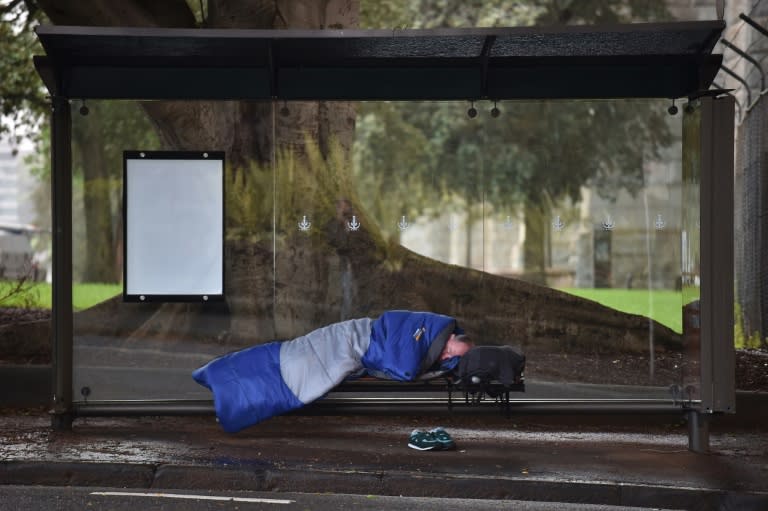Soaring house prices lock Australia's homeless out
Homelessness is on the rise in Australia, experts warn, with a growing number of people failing to benefit from the nation's stellar economy as it readies to mark a record 26 years without a recession. The unprecedented economic expansion -- fuelled by a massive mining investment boom -- has boosted house prices and lined the pockets of many citizens. But it has also led to the country's biggest cities, Sydney and Melbourne, being ranked second and 10th on a list of the world's least affordable housing. The soaring prices have placed further pressure on those already struggling to afford a roof over their heads, with a public outcry on housing affordability sparking action by federal and state governments to fund more social and inexpensive residential projects. "Australia is a wealthy country and so it shouldn't have the levels of homelessness that it does have," Homelessness New South Wales (NSW) chief Katherine McKernan told AFP. "If you compare it to London and New York, the numbers of people seeking homelessness support are comparatively higher. We think that homelessness is increasing in Sydney and Melbourne due to the lack of affordable housing." Australia's agency for health and welfare statistics AIHW said demand for homelessness services reached a record high of 279,000 people in 2015-16, led by those affected by domestic and family violence, a 33 percent jump from 2011-12 when the data was first collected. More than 100,000 people were reported homeless in the 2011 national census, with welfare groups expecting the most recent survey held last year to show an increase. Rough sleepers are more visible in cities, with Melbourne's Herald Sun describing a homeless camp outside a major train station during the Australian Open tennis Grand Slam in January as a "grand slum". In downtown Sydney, Lanz Priestley has set up a "safe space" for the homeless, offering 24/7 access to free food just metres from the Reserve Bank of Australia, shiny office towers and the NSW state parliament. "People have the basic human right to feel safe," Priestley said. "I think the support services (in Sydney) aren't even in the library when it comes to rough-sleeper safety." Among those resting on piles of bedding spread across colourful crates is 20-year-old Nina Wilson, who helps Priestley run the Martin Place site. "I am now in transitional housing as I'm nearly six months pregnant and this is sort of my way of giving back because I know what it's like to be homeless... I can't just watch these guys have nothing," Wilson said. Salvatore Magenta, 64, said he has been living on the streets since 2000 as he grapples with growing health problems. "I slept in a car for about 15 years, I didn't let no one know what I was doing with my life," Magenta said. "I will need housing soon, or someone will find me dead on the streets." -- This story accompanies photos by Peter Parks --





